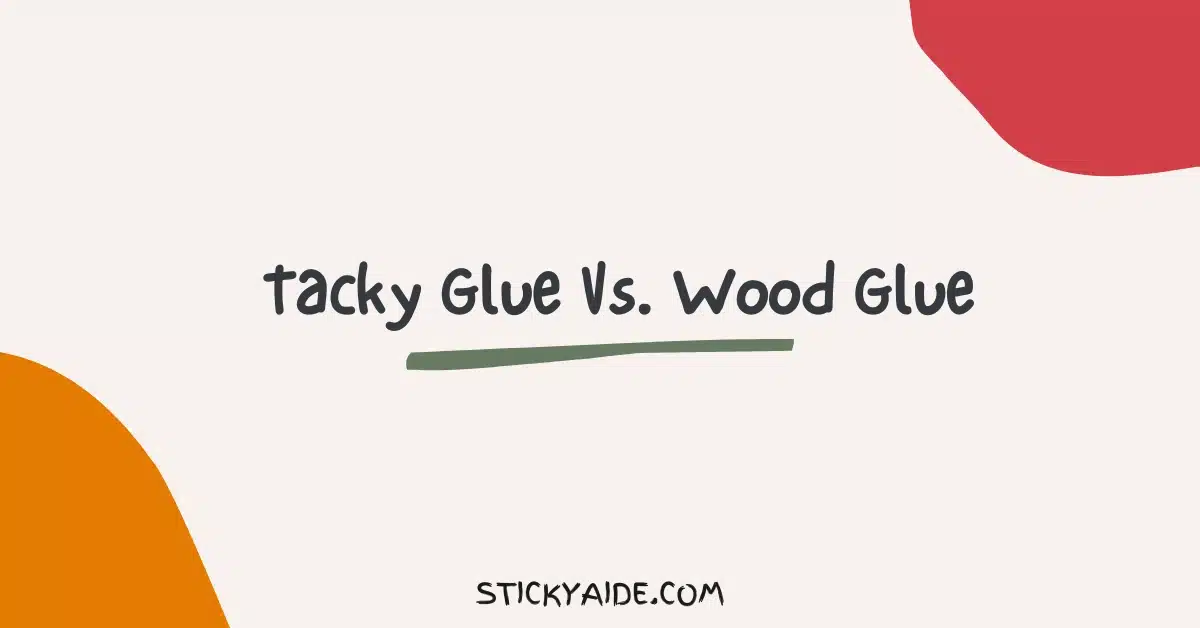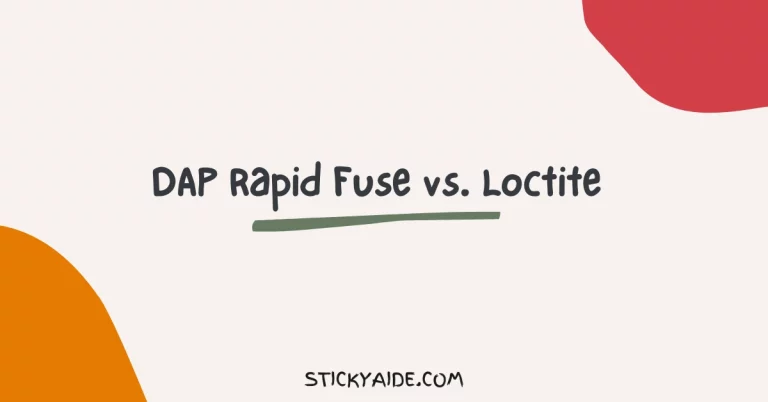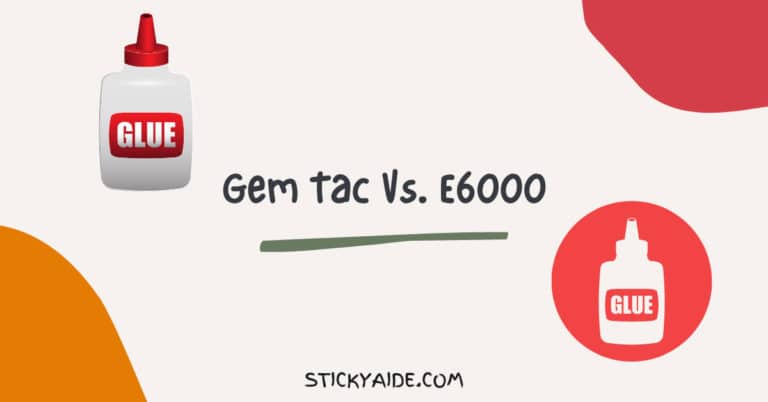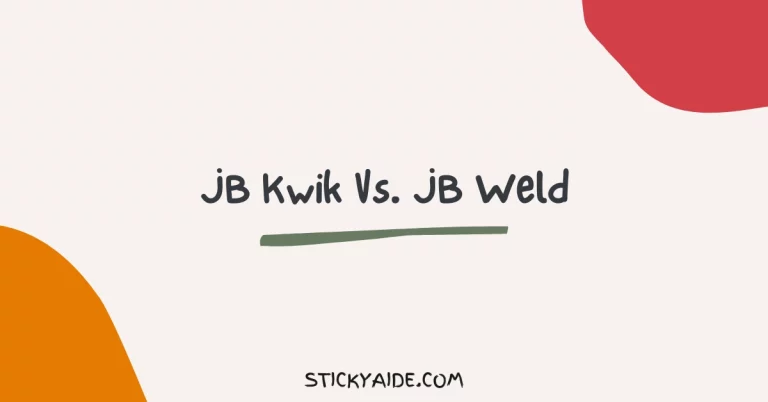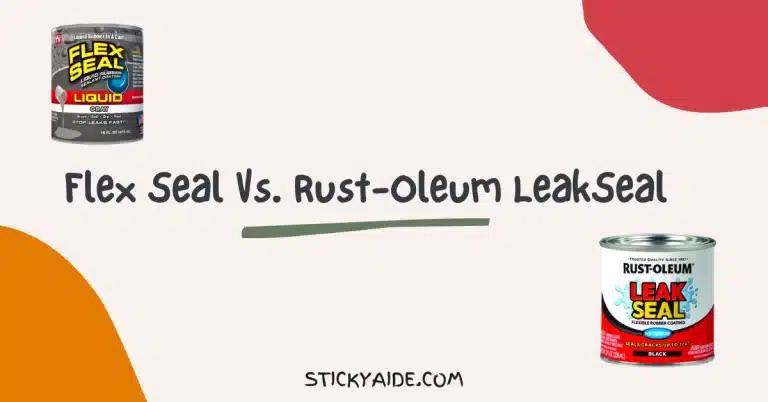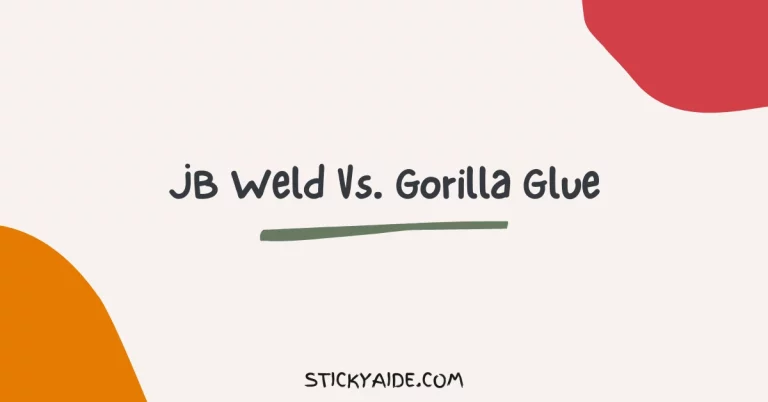It is important to select the right adhesive for woodworking projects to ensure successful completion. Both tacky glue and wood glue are popular options, but which one is most appropriate for your project? Here, I will compare tacky glue vs. wood glue and help you decide which one is best for your next woodworking project.
Read More: Tacky Glue Vs. Gorilla Glue
Tacky Glue Vs. Wood Glue

Overview of Tacky Glue
Crafters, scrapbookers, and other DIY enthusiasts use tacky glue to make crafts and other projects. Typically, it is white in color and dries clear. When dried, tacky glue remains flexible and is known for its smooth consistency and ease of use.
For woodworking projects that require a strong and durable bond between lightweight materials, tacky glue is an excellent choice. Softwoods, plywood, and MDF can be successfully glued with tacky glue. This product is ideal for the assembly of small woodworking projects such as picture frames, birdhouses, and small decorative items.
Generally, tacky glue is appropriate for lightweight woodworking projects requiring flexibility and ease of use. After drying, it remains flexible, making it ideal for woodworking projects that require delicate or small pieces.
Overview of Wood Glue
In woodworking, wood glue is also known as carpenter’s glue. It is a water-based adhesive that is designed specifically for use on wood. Typically, wood glue comes in two types: PVA and polyurethane.
Softwoods such as pine, cedar, and fir are commonly glued with PVA wood glue. A strong bond is formed between the wood fibers when it dries. After it dries, PVA wood glue can be sanded and painted over.
Polyurethane wood glue provides durability and water resistance for woodworking projects. It is ideal for use on hardwoods and outdoor projects. In addition to providing a strong bond between wood fibers, polyurethane glue is also resistant to heat, solvents, and impacts.
Overall, wood glue provides strength and durability to woodworking projects. The strong bond it creates between wood fibers makes it ideal for furniture, cabinetry, and other heavy-duty woodworking projects.
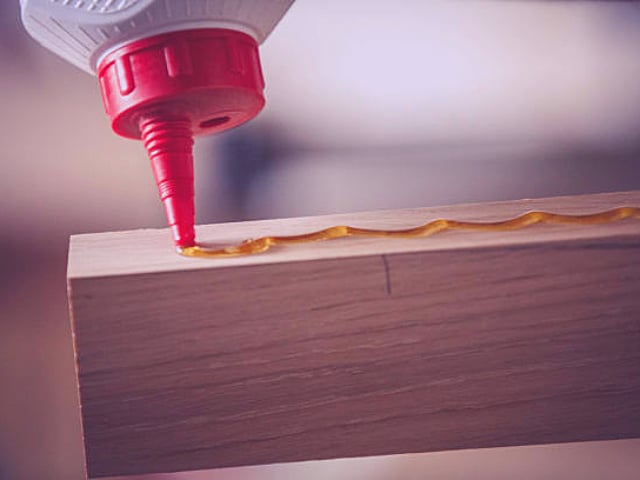
Read More: Tacky Glue Vs. Hot Glue
Which One Is Best? Tacky Glue or Wood Glue?
Depending on the materials, the project type, and the specific requirements, you may need tacky glue or wood glue for your project. You need to consider several factors when choosing between tacky glue and wood glue.
You may want to use tacky glue for lightweight projects that require flexibility, such as book bindings or small crafts. Even after drying, tacky glue remains flexible, making it ideal for materials that must be bent or repositioned.
Alternatively, wood glue is best suited for heavy-duty woodworking projects requiring strength and durability. The glue fills in gaps between the fibers of wood, forming a strong bond that endures for a long period of time.
Your choice of tacky glue or wood glue depends on the materials and requirements of your project. In the case of lightweight materials or delicate projects, tacky glue may be a better choice.
Wood glue is recommended for heavier or outdoor projects that require a strong and durable bond. It’s still important to choose the right wood glue for your project, as PVA and polyurethane glue have different strengths and uses.
Read More: How to Open Tacky Glue?
Is Tacky Glue Suitable For Wood?
Tacky Craft Glue is the ideal wood glue for crafting. The versatility of this glue allows it to be used on a variety of surfaces, including wood.
Is Tacky Glue Strong?
As soon as tacky glue is applied, it dries clear and quickly, leaving a strong, reliable bond for lightweight materials.
Does Epoxy Work Better Than Wood Glue?
As well as being waterproof, epoxy fills gaps well in wood. Wood glues won’t work well if you have a gap between your wood pieces.
Last Opinion
Tacky glue and wood glue have their advantages and disadvantages, and the right adhesive for your project depends on the materials and requirements. Wood glue is ideal for heavy-duty woodworking projects requiring a secure bond, while tacky glue is best for lightweight materials and delicate projects. In this article, I try to compare tacky glue vs. wood glue to help you find the right glue between them.

